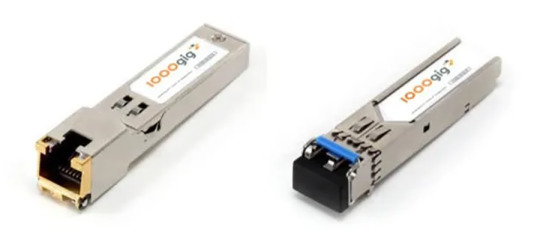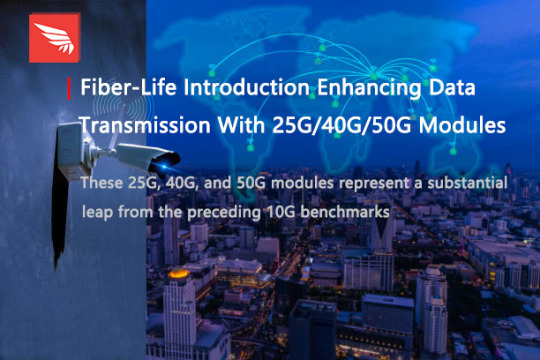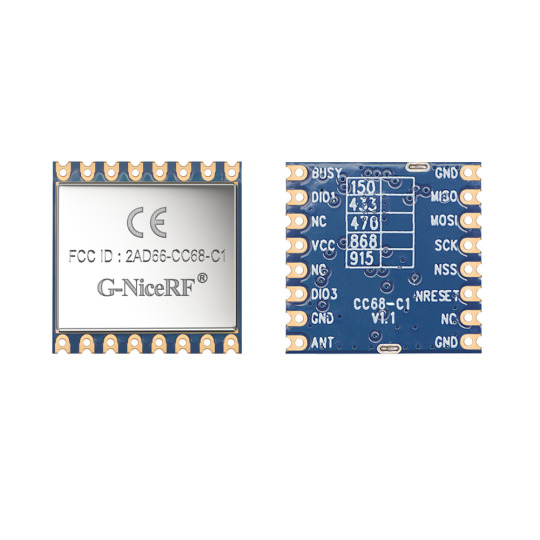#Transceiver Module
Explore tagged Tumblr posts
Link
SA618F22 is an embedded full duplex transmission module, combining wireless digital and wireless audio. Users can not only wirelessly transmit data through serial ports, but also achieve wireless transmission of voice through I2S or analog audio interfaces.
0 notes
Text
What Is An Optical Transceiver? What Does It Do? And What Sizes Do They Come In?

When it comes to telecommunications and data transmission, the optical transceiver is a vital element, which enables the rapid and efficient exchange of data and information across vast distances.
Serving as a crucial component within networks, data centres, and communication systems, an optical transceiver seamlessly combines the worlds of optics and electronics, converting data into optical signals for transmission along fibre optic cables.
Transceivers plays a pivotal role in the provision of high-speed internet, cloud computing, and telecommunications, which all assist with the global connectivity that we know enjoy and rely upon in this digital age.
To continue reading about this please click here.
#compatibleopticaltransceivers#compatibletransceivers#fiber#fiberoptics#fibre#fibreoptics#modules#optics#opticaltransceiver#opticaltransceivers#transceiver#transceivers
4 notes
·
View notes
Text
am sad because i'm beginning to realize my skillset and the skillset i'm studying for are probably pretty unhelpful for building a combat robot overall
#im imagining there is probably not much use for custom electronics overall as opposed to prebuilt modules for things like motor control#and radio transceivers#not that i'd really be likely to find people with other skillsets to build one with anyhow
3 notes
·
View notes
Text
https://www.futureelectronics.com/p/semiconductors--wireless-rf--rf-modules-solutions--bluetooth/da14531mod-00f01002-dialog-semiconductor-8189021
Proprietary RF Module, wireless technology, Transceiver ICs, Bluetooth device
DA14531MOD Series 3.6 V -93 dBm Sensitivity Surface Mount Bluetooth LE Module
#Dialog Semiconductor#DA14531MOD-00F01002#Wireless & RF#RF Modules#Bluetooth#USB Bluetooth Adapter#GPS Module#Bluetooth Module#Proprietary RF Module#wireless technology#Transceiver ICs#Bluetooth device#RF Transceiver#Wireless detectors
1 note
·
View note
Text

Fiber-Life Introduction Enhancing Data Transmission With 25G/40G/50G Modules
These 25G, 40G, and 50G modules represent a substantial leap from the preceding 10G benchmarks, offering enhanced data throughput, improved energy efficiency, and superior performance for high-density networks.
0 notes
Text
https://www.futureelectronics.com/p/semiconductors--wireless-rf--rf-modules-solutions--gps/max-8q-0-u-blox-3122418
RF Modules, Digital rf modulator, Proprietary RF Module, Radio frequency module
MAX-8 Series 3.6 V u-blox 8 GNSS TCXO ROM Green 9.7x10.1 mm LCC Module
#u-blox#MAX-8Q-0#Wireless & RF#RF Modules & Solutions#GPS#Digital rf modulator#Proprietary RF Module#Radio frequency#USB Adapter#Bluetooth transmitter module#Balanced modulator#Demodulator#Bluetooth Accessories#Transceiver radio waves
1 note
·
View note
Text
https://www.futureelectronics.com/p/semiconductors--wireless-rf--rf-modules-solutions--gps/neo-m8q-0-u-blox-9122422
RF transmitter, wireless alarm systems, Bluetooth adapter, GPS Module
NEO-M8 Series 3.6 V -167 dBm Surface Mount u-blox M8 Concurrent GNSS Module
#u-blox#NEO-M8Q-0#Wireless & RF#RF Modules & Solutions#GPS#transmitter#wireless alarm systems#Bluetooth adapter#GPS Module#Accessories#RF Modules transmitter#Power#USB#Bluetooth devices accessories#RF transceiver
1 note
·
View note
Text

433MHz Receiver Module: How Industrial Remote Controls Differ from Consumer Ones
The 433MHz receiver module is a common remote control receiving device used extensively in both consumer and industrial sectors. The performance of 433MHz receiver modules can vary between consumer and industrial remote controls, and these differences often manifest in aspects such as communication range, stability, and functionality.
Communication Range: There are differences in communication range between 433MHz receiver modules used in consumer and industrial remote controls. In consumer remote controls, the communication range typically falls within the range of tens to a hundred meters, suitable for controlling household appliances and entertainment devices. In contrast, for industrial remote controls to meet the operational requirements of devices over longer distances, 433MHz receiver module can achieve a significantly larger communication range, reaching several hundred meters or even farther.
Stability: Stability is a crucial performance metric. In consumer remote controls, 433MHz receiver modules generally exhibit good stability, maintaining signal transmission stability in a home environment. However, 433MHz receiver modules used in industrial remote controls require higher immunity to interference, ensuring stable signal transmission in industrial environments where factors like electromagnetic interference and noise are prevalent.
Functionality and Reliability: Functionality and reliability of 433MHz receiver modules also differ between consumer and industrial remote controls. Consumer remote controls typically have simple functions suitable for basic device control, such as TVs and audio systems. Industrial remote controls demand more functional options and complex control modes, allowing for simultaneous control of multiple devices or machinery. They also incorporate safety features to meet diverse industrial application requirements.
RF4463Pro Transceiver Module This solution features a highly integrated wireless ISM band transceiver chip. The module offers low power consumption and strong anti-interference capabilities. It boasts an extremely low receive sensitivity of -126 dBm, coupled with an industry-leading +20 dBm output power to ensure extended reception distances and improved link performance. The 433MHz receiver module has obtained FCC/CE certification.
Frequency Range: 433/490/868/915 MHz
Antenna automatic matching and bidirectional switch control
Configurable data packet structure
Ultra-low power shutdown mode
64/128-byte transmit and receive data registers (FiFo)
Low power detection
Temperature sensing and 8-bit analog-to-digital converter
Integrated voltage regulator
Frequency hopping function
Power-on reset function
Built-in crystal adjustment function
There are notable performance differences in the data of 433MHz receiver modules used in consumer and industrial remote controls. The 433MHz receiver module in industrial remote controls exhibit longer communication distances, superior anti-interference capabilities, more functional options, and complex control modes. On the other hand, 433MHz receiver module in consumer remote controls prioritize portability and ease of use, making them suitable for basic device control in households and entertainment venues. These differences allow 433MHz receiver modules to adapt to various application scenarios and requirements, providing users with an enhanced remote control experience.
For details, please click:https://www.nicerf.com/collection/433mhz-front-end-rf-modules
Or click:https://www.alibaba.com/product-detail/G-NiceRF-RF4432-433MHz-High-Sensitivity_62041368156.html?spm=a2747.manage.0.0.307b71d2s2tlbp
For consultation, please contact NiceRF (Email: [email protected])
1 note
·
View note
Text
https://www.futureelectronics.com/p/semiconductors--comm-products--i2c/pca9532pw-118-nxp-5033862
16-bit I2C-bus LED Dimmer, Embedded communication, image processing,
PCA9532 Series 5.5 V 350 uA 400kHz SMT 16-bit I2C-bus LED Dimmer - TSSOP-24
#NXP#PCA9532PW#118#Comm Products#I2C#16-bit I2C-bus LED Dimmer#Embedded communication#image processing#High-Speed#Isolated CAN Transceiver ICs#CAN bus lines#i2c modules#Can Power Systems#CAN transceiver#Ethernet MAC controller
1 note
·
View note
Text
https://www.futureelectronics.com/p/semiconductors--comm-products--can/mcp2551-i-sn-microchip-5584800
Can Power Systems, Ethernet controller, High-Speed CAN Transceiver
MCP2551 Series 5.5 V 1 Mb/s Surface Mount High-Speed CAN Transceiver - SOIC-8
#Microchip#MCP2551-I/SN#Comm Products#CAN#Power Systems#Ethernet controller#High-Speed CAN Transceiver#Ethernet MAC controller#CAN Controller Interface#Can bus communication#Controller Interface Module#Module Bus Drive
1 note
·
View note
Text
https://www.futureelectronics.com/p/passives--capacitors--aluminum-electrolytic-capacitors/eee-ftj681xap-panasonic-8057989
Aluminum oxide, multi section capacitor, Chip Aluminum Electrolytic Capacitors
EEE-FT Series 6.3 V 680 uF Ø6.3 x 7.7 mm 105° Low ESR Electrolytic Capacitor
#Panasonic#EEE-FTJ681XAP#Capacitors#Aluminum Electrolytic Capacitors#Reforming#Automotive Digital Equipment#Audio capacitor#multi section capacitor#Chip#Transceiver radio waves#garage door opener#proprietary RF modules
1 note
·
View note
Text
https://www.futureelectronics.com/p/semiconductors--wireless-rf--rf-modules-solutions--80211-wlan/lbwa1uz1gc-958-murata-5143837
WI FI module manufacturers, RF Solutions, RF Modules, industrial remote controls
2.4/5 GHz 3.3V Shielded Ultra Small Dual Band WiFi 11a/b/g/n+Ethernet+MCU Module
#Wireless & RF#RF Modules & Solutions#802.11/WLAN#LBWA1UZ1GC-958#Murata#alarm systems#GPS#RFID modules#WI FI module manufacturers#industrial remote controls#transceiver radio waves#garage door opener#proprietary RF modules
1 note
·
View note
Text
https://www.futureelectronics.com/p/semiconductors--wireless-rf--transceiver-ics/sp4082een-l-tr-maxlinear-6164468
High speed data transmission, Bus Transceiver, USB RFreceiver
SP4082E Series 115 kbps 5 V RS-485 / RS-422 Transceiver - NSOIC-8
#MaxLinear#SP4082EEN-L/TR#Wireless & RF#Transceiver ICs#rf transceiver module#usb rf transmitter#High speed data transmission#Bus Transceiver#usb rf receiver#Replacement USB Receiver
1 note
·
View note
Text
https://www.futureelectronics.com/p/semiconductors--comm-products--i2c/pca9532pw-118-nxp-5033862
I2c bus, Embedded communication, Isolated CAN Transceiver ICs
PCA9532 Series 5.5 V 350 uA 400kHz SMT 16-bit I2C-bus LED Dimmer - TSSOP-24
#NXP#PCA9532PW#118#Comm Products#I2C#Ethernet MAC controller#communication protocol#i2c module#bus#Embedded communication#Isolated CAN Transceiver ICs#High-Speed CAN Transceiver#CAN transceiver#SPI bus#CAN bus lines
1 note
·
View note
Text
Ubiquiti Network - Professional Network Technology
📌 Ubiquiti Network - Professional Network Technology 😍 High-performance solutions for service providers and enterprises.
👉 Fully managed high-performance switching Industry-leading user experience and value
Contact Us:👇 📧 [email protected] 🔗 https://miatlantic.com/brand/ubiquiti-networks

#morgan_ingland_limited#Christmas🎄#ubiquiti#christmas2023#ubiquitinetworks#switch#networkswitch#networking#hardware#AirFiber#transceiver#module#networkantenna#uk#newyear
0 notes
Text

RF Transmitter and Receiver: Key Components in Wireless Communication
RF (Radio Frequency) transmitters and receivers are fundamental components in modern wireless communication systems. These components play a pivotal role in enabling various wireless technologies, from mobile phones to Wi-Fi routers, to operate seamlessly. In this article, we will explore the significance of RF transmitter and receiver in wireless communication and delve into their essential functions and applications.
RF Transmitter: Sending Signals Wirelessly
An RF transmitter is a crucial element in any wireless communication system. It is responsible for converting electrical signals into radio waves that can travel through the air and be received by compatible devices. RF transmitters are found in a wide range of applications, including radio broadcasting, remote control systems, and data transmission.
One of the key features of an RF transmitter is its ability to modulate the carrier signal with the information to be transmitted. This modulation process allows the transmitter to encode data, voice, or other forms of information onto the radio waves. The modulated signal is then amplified and broadcasted through an antenna.
In modern wireless technologies, such as Bluetooth and Wi-Fi, RF transmitters are the driving force behind the wireless connectivity that allows devices to communicate with each other over short or long distances.
RF Receiver: Capturing and Decoding Signals
On the receiving end, the RF receiver is responsible for capturing the transmitted radio waves, demodulating them, and converting them back into electrical signals that can be processed by electronic devices. RF receivers are integral components in devices like car radios, GPS systems, and satellite television receivers.
The receiver's demodulation process is crucial because it extracts the original information from the modulated carrier signal. This process allows the receiver to recover the transmitted data, audio, or video signal accurately. In essence, the RF receiver acts as the gateway for converting radio waves into usable information.
Applications of RF Transmitters and Receivers:
Wireless Communication: RF transmitters and receiver is the backbone of wireless communication system, enabling devices to transmit voice, data, and multimedia content over the airwaves. They are vital for mobile phones, two-way radios, and wireless Internet connections.
Remote Control Systems: Many remote control devices, including TV remotes, garage door openers, and toy controllers, rely on RF transmitters and receivers to send and receive signals.
Telemetry and Data Acquisition: In industries like agriculture and environmental monitoring, RF technology is used to collect data wirelessly from remote sensors and devices.
Security Systems: Wireless security systems, such as home alarms and surveillance cameras, use RF transmitter and receiver for communication between sensors and control panels.
Conclusion:
RF transmitters and receivers are the unsung heroes of the wireless world, making it possible for us to communicate, control devices remotely, and access information seamlessly. As technology continues to advance, these essential components will continue to evolve and play a pivotal role in our increasingly connected world. Whether it's sending a text message, streaming a video, or unlocking your car with a remote, RF transmitter and receiver is at the heart of it all, making our lives more convenient and interconnected.
For details, please click:
Or click:https://www.alibaba.com/product-detail/G-NiceRF-CC68-C1-160mW-433MHz_1600914212665.html?spm=a2747.manage.0.0.78e071d2L4s02Q
For consultation, please contact NiceRF (Email: [email protected])
0 notes